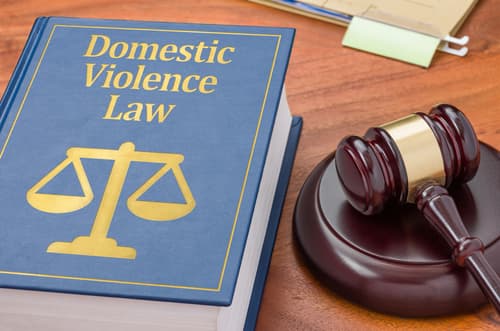Barrington Domestic Violence Attorneys
What Is Domestic Violence?
Domestic violence- a term we have all heard but, in the past, rarely discuss. Domestic violence is a serious crime against an individual, and society, that creates family disharmony, promotes patterns of escalating violence, and creates an emotional atmosphere that is not conducive to healthy childhood development or emotional security of the individual. In Illinois, the legal system recognizes that in the past it has ineffectively dealt with family violence, allowing abusers to escape prosecution or financial liability, and has not adequately acknowledged the criminal nature of domestic violence. As practicing Barrington domestic violence attorneys in Illinois, we acknowledge that despite the changes in the law we needed to do more, in practice, to appropriately protect and assist victims of domestic violence, or otherwise provide a proper defense to individuals wrongly accused of domestic violence.
In Illinois, the definition of abuse has been broadened to acknowledge other forms of abuse that others cannot see or readily identify. According to the Illinois Domestic Violence Act, abuse means physical abuse, harassment, intimidation of a dependent, and interference with personal liberty or willful deprivation. Harassment is defined as knowing conduct which is not necessary to accomplish a purpose that is reasonable and which would cause emotional distress. Although this seems extremely broad, the law identifies this conduct as things such as: (1) creating a disturbance at one’s place of employment or school; (2) repeatedly telephoning an individual (calls and texts); (3) repeatedly following an individual in a public place; (4) repeatedly keeping one under constant surveillance; and (5) threatening physical force, confinement, or restraint on one or more occasion. It is important to recognize that these forms of conduct are just some examples of the behavior that the law is designed to protect an individual from. For example, if your ex-boyfriend follows you and sends you threatening messages, it may be considered domestic violence - even if he never laid a hand on you.
 The Illinois Domestic Violence Act provides protection to families and household members. This includes spouses, former spouses, parents, children, stepchildren and other persons related by blood or by present or prior marriage, person who share or formally shared a common residence, people who have or allegedly have a child in common, person who share or allegedly share a blood relationship through a child, person who have or have had a dating or engagement relationship, person with disabilities and their personal assistants and caregivers. The Act extends its protections to individuals regardless of age, race, ethnicity, or sexual orientation.
The Illinois Domestic Violence Act provides protection to families and household members. This includes spouses, former spouses, parents, children, stepchildren and other persons related by blood or by present or prior marriage, person who share or formally shared a common residence, people who have or allegedly have a child in common, person who share or allegedly share a blood relationship through a child, person who have or have had a dating or engagement relationship, person with disabilities and their personal assistants and caregivers. The Act extends its protections to individuals regardless of age, race, ethnicity, or sexual orientation.
As the Illinois Domestic Violence Act is designed specifically to provide protection to families and households, it is something that is very common, but often complicates, divorce and parenting matters.
Due to the nature and complexity of domestic violence, we cannot ignore the effects that domestic violence has on divorce or in parenting matters. It is not uncommon for many men, women, and children to be victims of unjustifiable acts of violence and who deserve the highest degree of compassion and advocacy. It is also not uncommon for many individuals to be falsely accused of domestic violence, by current or ex-spouses/partners in an effort to gain an advantage in the inevitable divorce or parenting matter.
Whether the accusations are true or false, each one must be taken into account when discussing these legal matters. As experienced attorneys, we will listen to your story and discuss the best way to proceed based on the specific facts of your case.
At Manassa Law P.C., our Barrington domestic violence lawyers provide strong, respectful, and tenacious advocacy on behalf of those seeking protection from domestic violence and those who are wrongfully accused of this offense. Protecting our clients and their family's safety is of paramount importance to us. We bring decades of experience to domestic violence matters and other divorce and family law issues.
What can you do if you are a victim of domestic violence?
The best way to protect oneself from domestic violence is to pursue an Order of Protection. An Order of Protection is sought through civil court. This is different from pursuing criminal charges against your abuser. In criminal cases, the State of Illinois (i.e. the state prosecutor) decides whether to pursue, and afford you protection, by prosecuting the abuser. Due to the burden of proof required in criminal cases, the State often does not have the necessary evidence to properly prosecute and convict the abuser. Illinois recognized the need to allow a victim to pursue protection outside the confines of the criminal justice system. Thus, victims of domestic abuse were afforded protection from their abusers through a Civil Order of Protection (sometimes called a Restraining Order). An Order of Protection is a court order that can restrict an abusers ability to continue the abuse by enforcing various remedies such as restricting the abuser's contact, in all forms, with the victim, granting the victim exclusive (sole) possession of any shared residence and/or other property, restricting an abuser's ability to show up at the victim’s place of employment, residence, school, or other locations, and provide limitations on the abusers parenting time if children are involved. Additional remedies may include:
● Prohibit the abuser from continuing threats and abuse;
● Require the abuser to attend counseling;
● Prohibit the abuser from hiding a child within the state or taking a child out of state;
● Require the abuser to pay for any losses associated with the abuse;
● Award the victim certain personal property and/or bar the abuser from destroying or selling any property; and
● Require the abuser to turn over their weapons to local law enforcement.
A court may also place additional restrictions or take other actions designed to protect the person seeking the protective order.
To obtain an Order of Protection, the victim files a Petition for Emergency Order of Protection. This petition is presented to a Judge without notice being given to the abuser. If the Judge finds that the allegations in the petition fall within the protections granted by the Illinois Domestic Violence Act, the Judge will enter an Emergency Order of Protection. This order will be valid for a maximum of 21 days. At the time of entering the Emergency Order of Protection, the Judge will set a hearing for a plenary (2 year) Order of Protection by the 21st day following entry of the emergency order. During those 21 days, the abuser will be served with the Emergency Order of Protection and be given notice of the hearing date for the plenary (2 year) order of protection. If the abuser fails to appear for the hearing on the plenary order of protection, the court has the right to enter a plenary (2 year) order of protection against the abuser.
Although an Order of Protection is a civil proceeding, it is given special enforcement authority within the criminal justice system. To enforce an Order of Protection or to report any violations of the Order of Protection, the victim can immediately contact local law enforcement. The local authorities will immediately arrest an abuser who violates an Order of Protection and the violation(s) will be prosecuted by the State in the criminal justice system.
Any Order of Protection, whether emergency or plenary, can appear on a person’s background check and have negative effects on an individual’s life; this helps provide the accountability that an abuser deserves and hopefully becomes a deterrent for the abuser in the future to refrain from further abuse.
How Does Domestic Violence Affect Family Law Matters?
Domestic violence has a significant impact on a family, particularly where children are involved. These impacts often lead to divorce or the need for resolution of various family law matters. In Illinois, Judges have broad discretion in considering what is in the best interests of a child as it relates to allocating decision-making responsibility and parenting time. When domestic violence is involved, the Judge will consider the abuse when determining what is in the best interest of the child. As you can imagine, this often leads to an allocation of decision-making and a majority of parenting time to the non-abusive parent.
If a parent is or is likely to be a danger to a child’s mental, physical, moral, or emotional well being, a Judge can impose limitations on parenting time for the abusive parent. This can include an order for supervised parenting time or an order to restrict an abuser's parenting time until certain conditions are met, such as counseling, assistance with substance abuse, unification therapy with the child, or intensive parenting classes.
In the most extreme cases, a court may terminate the parental rights of an abusive parent. For this to occur, the abusive parent would have to be found to be unfit to care for the child. This is an extremely high burden to establish and is not one that happens often.
In most family matters, the courts require the parties to participate in mediation. However, when there are allegations of domestic violence, a court will not require a victim to subject themselves to the mediation process with their abuser. It is logical to see why- an abuser is not likely to compromise with their victim and will often utilize the mediation process as a way to further abuse the victim.
Unfortunately, domestic violence is far too common, and is present in many family law matters. As experienced Barrington domestic violence attorneys, we can help you navigate your family law matters and utilize our expertise to help protect you from domestic violence or unfounded allegations of domestic violence. In either situation, we are here to help.
Contact a Barrington Spousal Abuse Lawyer

If you think you are a victim of domestic violence, or have been wrongly accused of domestic violence, it is important for you to take steps to protect yourself. Obtaining legal counsel is imperative to ensuring you and your family’s safety.
In every domestic violence case, Manassa Law P.C. works diligently in defense of our client's best interests, their well-being, and the welfare of their children. We treat each client with compassion and respect and use our considerable experience to protect you. To schedule a free initial consultation with our Barrington divorce attorneys, call our Barrington Office at 866-420-4611, or contact us online.
Manassa Law - Barrington Office
1000 Hart Rd 3rd Floor
Barrington, IL 60010
P: (847) 996-9177
